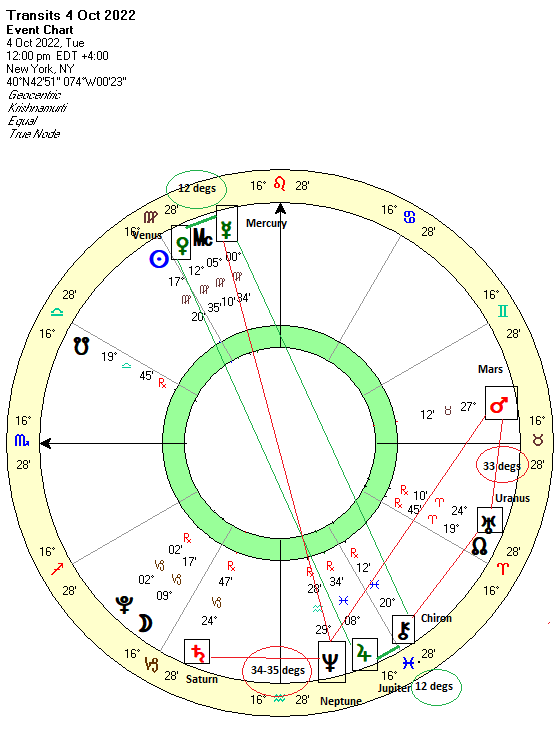 (5 October 2022)
US stocks have staged an impressive 5% rebound so far this week after
easing inflation concerns saw bond yields and the dollar move sharply
lower. Investors are fixated on inflation since the falling inflation
translates into lower bond yields, cheaper credit and greater economic
activity. The Federal Reserve is something of a wild card in this
equation, however, as its ultra-hawkish stance this year has arguably
made the sell-off worse. Of course, the Fed's inaction in 2021 allowed
inflation and the asset bubble get out of control in the first place.
(5 October 2022)
US stocks have staged an impressive 5% rebound so far this week after
easing inflation concerns saw bond yields and the dollar move sharply
lower. Investors are fixated on inflation since the falling inflation
translates into lower bond yields, cheaper credit and greater economic
activity. The Federal Reserve is something of a wild card in this
equation, however, as its ultra-hawkish stance this year has arguably
made the sell-off worse. Of course, the Fed's inaction in 2021 allowed
inflation and the asset bubble get out of control in the first place.
There are several astrological reasons for this week's rebound. First,
Mercury ended its three-week retrograde cycle over the weekend and
returned to direct motion on Sunday. Mercury, the planet of trading and
commerce, tends to be more bullish when it moves forward, although we
should note this is usually not a strong influence. More important
perhaps was the fact that Mercury began to separate from its opposition
with Neptune. Mercury-Neptune oppositions are usually bearish,
especially if Mercury stations retrograde or direct around the time of
the opposition. That was very much the case here as stocks fell through
much of last week just before the direct station while Mercury was
still approaching its opposition with Neptune. Sentiment began to
improve once the opposition aspect began to separate on Monday.
One other significant reason for this week's gains is due to a bullish
midpoint alignment involving Mercury, Venus, Jupiter and Chiron. While
midpoints are not part of traditional Vedic astrology, I have found
them to be a useful add-on to more fundamental techniques of analysis.
Specifically, I have found that midpoints that are defined in terms of
angular separation are worth paying attention to. When two pairs of
planets are separated by an equal number of degrees, their energies are
more likely to resonate, for good or ill. So if Jupiter is one of the
four planets, then there is a better chance for gains. If Saturn is
one of the four planets, then declines become more likely.

One way to eyeball these planetary resonances is to focus first on slow-moving pairs involving distant planets. We can see that Jupiter and Chiron, a bullish planetary pair, are separated by about 12 degrees. And we can see that Mercury and Venus were also separated by about 12 degrees in the first half the week. Since both Mercury and Venus are considered benefic planets, there are arguably three bullish planets involved in this alignment and Chiron is also usually bullish unless it is aligned with Saturn. In terms of midpoints, we can say that the midpoint of Mercury and Chiron (10 Gemini) equals or resonates with the midpoint of Venus and Jupiter (10 Sagittarius).
But since Mercury has a very slow velocity in the aftermath of its direct station on Sunday, this 12-degree separation was quite short-lived. By today's session, it had widened to 13 degrees while the slow-moving Jupiter-Chiron pairing was still near 12 degrees. That was one reason why we may have seen a modest decline on Wednesday.
While these four-planet angular separations do not override other, more direct aspects, they should be integrated into a broader analysis of market influences. In fact, we can see another four-planet alignment could negatively shape sentiment in the coming days. The slow-moving bearish Saturn-Neptune pairing is separated by 34-35 degrees. On Friday, Mars and Uranus will also be separated by 34 degrees. Since both Saturn and Mars are malefic planets, this four-planet resonant alignment increases the odds of declines later this week. Although the angular separation of Mars and Uranus widens to 35 degrees next Monday, this could still be within range of the ongoing Saturn-Neptune pairing. While there are no hard and fast rules about the effective range of these resonate pairings, I would think anything within one degree or less is potentially significant.
Of course, the approaching Mars-Neptune square (exact late on Tuesday), is bearish in its own right and significantly boosts downside risk next week. While this is not a full-strength forward square Mars aspect, it is nonetheless worthy of consideration due to its exactitude.
For more details,